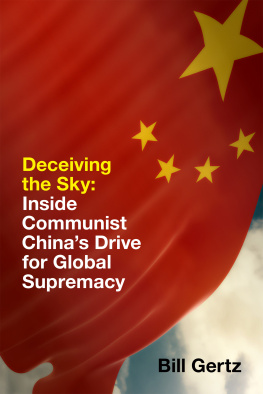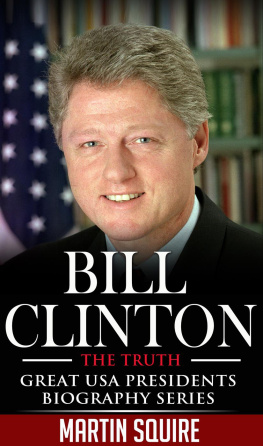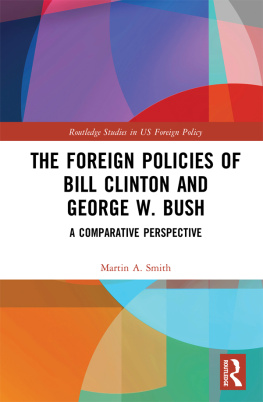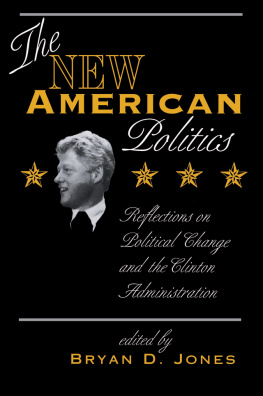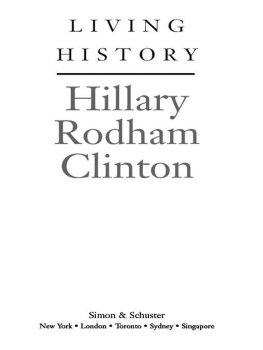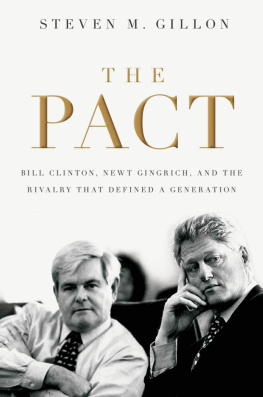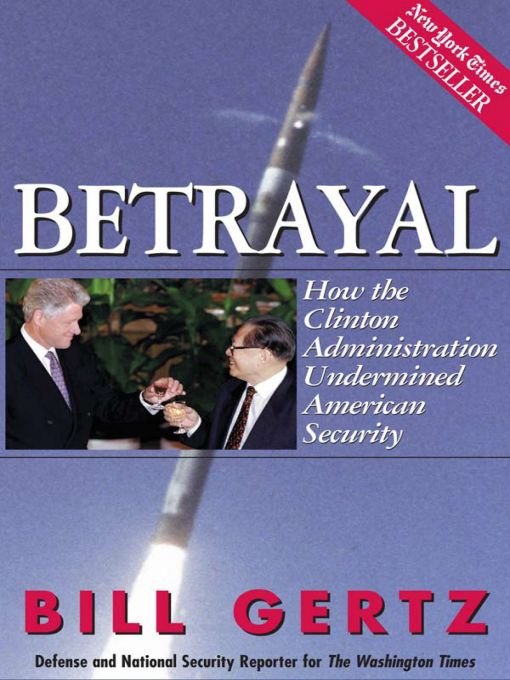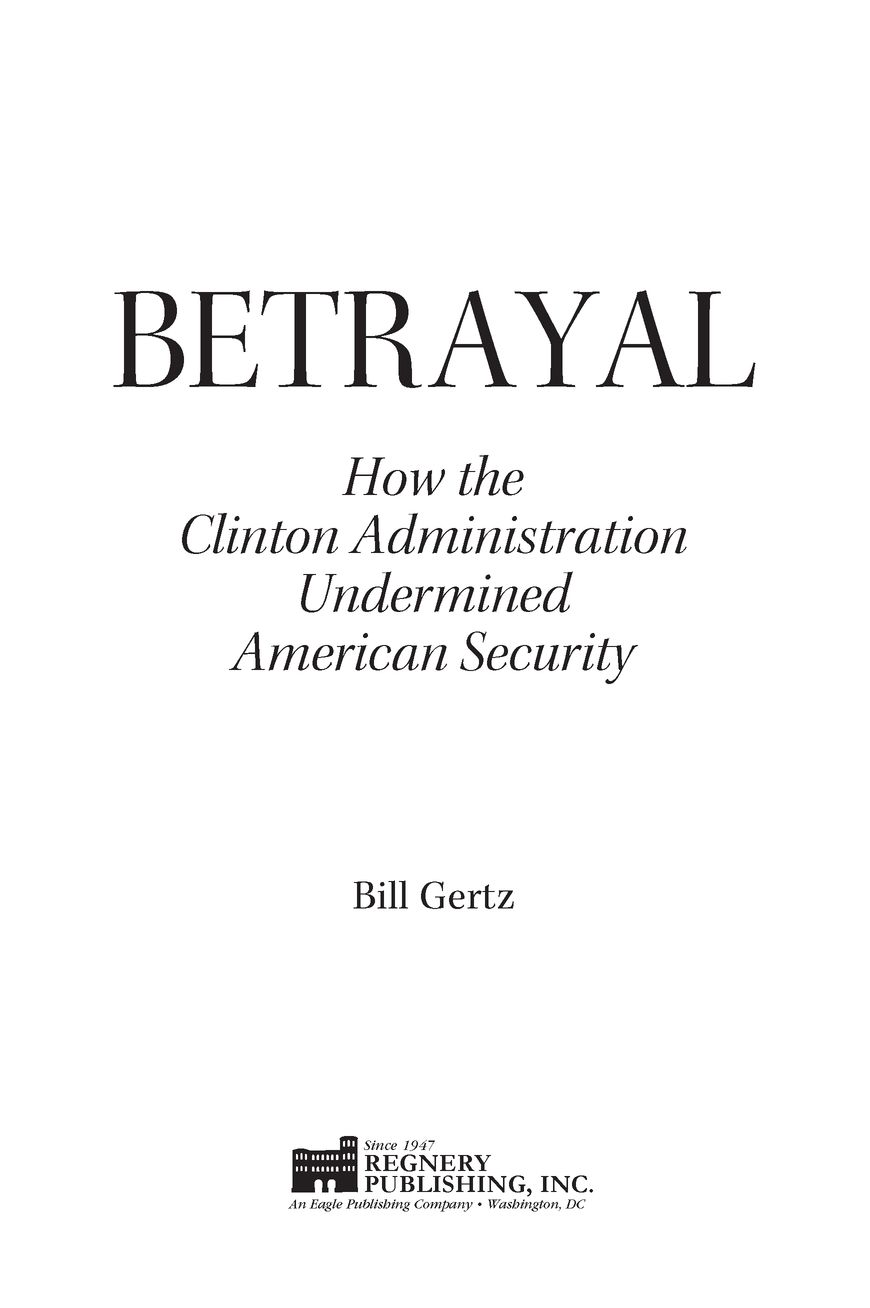Table of Contents
For Debra
We, too, shall encounter follies; but if great, they will be short, if long, they will be light; and the vigor of our country will get the better of them.
Thomas Jefferson, 1806
PART I
Betrayal
CHAPTER ONE
The Clinton Method: Foreign Policy Cover-up
In August 1998 President Bill Clinton went on national television and told the American people he had misled them by covering up his sordid sexual affair with a young White House intern. It was a shocking admission of guilt from a man holding the most powerful office in the world.
But the president has yet to admit, possibly even to himself, that he is guilty of a far more devastating cover-up: his administrations willful failure to provide for the common defence, as the Constitution demands. His wrongheaded policies affecting our nations security, and his cavalier cover-up of this misconduct, amount to betrayala betrayal that has left the United States weaker militarily as its enemies grow stronger and the world becomes more dangerous. He has squandered the Cold War victory that he inherited from his predecessors, presidents who understood the realities of global power politics that are apparently beyond Clintons grasp, or that he has no interest in learning.
By making the economy his top priority, Clinton has shortchanged vital military and intelligence programs, diverting some $80 billion a year from defense and spending it on domestic programs that reward corporations and political supporters. His use of military force has been haphazard and ineffective, calculated more to divert public attention from his personal problems than to advance any strategic national security goals.
A deep suspicion of the military and its crucial role in the nations survival has permeated the Clinton administration, leading to repeated misuse of the armed forces for peacekeeping and humanitarian functions for which they are ill suited. This in turn has led to confusion and low morale among the men and women in uniform on whom the nations safety depends. The best and the brightest are finding it difficult to justify their choice of a military career in the face of such hostility and maladministration, and many are leaving the ranks. Recruitment is down, and as a result standards have been lowered to fill enlistment quotas.
President Clinton has turned upside down President Dwight D. Eisenhowers warning about a too-powerful military-industrial complex. Using the end of the Cold War as cover, and to please corporate bigshots targeted for campaign contributions, Clinton has loosened export controls on several high-technology sectors, including U.S. high-speed computer manufacturers, software makers, and communications satellite makers who want to sell to China.
Two such companies are Loral Space & Communications, Ltd., and Hughes Electronics, both the subject of a federal investigation to determine how they passed embargoed militarily-useful rocket technology to Beijing without licenses. At the time of the weapons technology transfers, Loral was headed by Bernard Schwartz, who has given hundreds of thousands of dollars to Clinton and the Democratic Party. Hughes was headed by C. Michael Armstrong, who was named head of the influential Presidents Export Council after lobbying vigorouslyand successfullyfor the easing of U.S. national security export controls. Shortly after the decontrols took place, American supercomputers began showing up in both Chinese and Russian nuclear weapons development centershelping to build nuclear arms that might one day be turned against the United States.
The president, at the urging of Armstrong and other export-hungry businessmen, has consistently opposed the imposition of sanctions on nations that engage in the sale of dangerous weapons of mass destruction technology and equipment. In a rare moment of candor, during a White House meeting in April 1998, Clinton explained, What happens if you have automatic sanctions legislation is it puts enormous pressure on whoever is in the executive branch to fudge an evaluation of the facts of what is going on. This frank admission of deceit captured the essence of the administrations foreign and defense policies. Bill Clinton and his administration have relied heavily on this fudge factordeliberately ignoring, playing down, or covering up dangerous developments abroad that affect vital U.S. interests.
While Clinton has shown flexibility on virtually every political issue he has faced, he has stood firm on one: long-range missile defense. There will be none on his watch.
Appeasement diplomacy and White House spin-control are the Clinton substitutes for missile defenses. A case study is the radical communist regime in North Korea. When North Korea began developing nuclear weapons in the early 1990s, the Clinton administration solved the threat with a deceptive agreement. The hardline communists in Pyongyang promised to halt the nuclear arms program in exchange for two replacement nuclear reactors that would, so Clinton asserted, be less useful in developing weapons. But within four years of the agreement, U.S. intelligence agencies revealed that North Korea was engaged in a second, covert nuclear weapons program that circumvented the agreement. Pyongyang then shocked the world by test-firing its first intercontinental-range missile, capable of hitting U.S. territory with nuclear, chemical, or biological warheads.
The Clinton administration has covered up its mistakes, and, when facts leaked out, simply brushed them off as trivial, or lied outright.
The list of administration failures is a long one; this book will deal with the most egregious. Central to all of them, however, is the inescapable conclusion that President Clinton and his top advisers have covered up the seriousness of their mistakes, and, when facts leaked out, simply brushed them off as trivial, or lied outright.
This betrayal of American national security so angered some intelligence, defense, and foreign policy officials that they responded in the only way they knew how: by disclosing to the press some of the nations most secret intelligence. The disclosures ranged from secret Chinese arms sales and intelligence operations against the United States to highly detailed reports linking Russian officials with secret arms sales to Iran, from sensitive internal negotiations with Moscow to dangerous foreign weapons developments that have sharply contrasted with Clintons misguided belief that the world is growing more peaceful. Many of these officials, whose anonymity is their only protection from political retaliation, have been criticized by administration political appointees for risking national security by disclosing this information.
But the fact that these unsung heroes have jeopardized their careers to expose wrongdoing only underlines the great danger to our country brought about by the Clinton administration. I have worked with many of these people in my fourteen years covering defense and national security affairs, and I regard them as both dissidents and patriots. To a great extent, this book is their story as well as my own.
CHAPTER TWO
The Kapitan Man
A year from now everybody is going to deny this ever happened, and you and I are going to be two poor shmucks with bad eyes for the rest of our lives.


